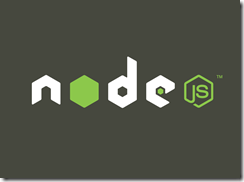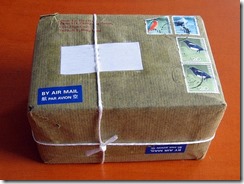My Rants and Raves

I am a developer first. I’ve become my family’s IT department but not by choice. This is the fate of most developers I know.

As a fan of the direction of ASP.NET, I’ve been an avid fan of Phil Haack’s for some time now. His clarity of communicating why the web should work definitely helped ASP.NET become the great framework it is today. He’s now doing the same thing at GitHub!

I recently had the pleasure of talking to the “A Bunch of Devs” user group in Atlanta about Web API. I had never spoken at this group and I had a great time.

One of the things that I help companies with are code reviews. I love doing code reviews. It let’s me look at a large codebase with fresh eyes and help a company out with a set of recommendations for improving their process, teams and code.

I’ve had a great time being interviewed by the .NET Rocks guys over the years in a variety of ways. This week on the Hello World Podcast I get to turn the tables and interview Richard.

I had the enormous thrill to talk with Scott Meyers (of Effective C++ fame) on my Podcast this week. If you write C++ or even used to write C++, then Scott is likely as important to your career as he has been to mine. Talking to him this week included how he got started, how the C++ spec has evolved and how much better Oregon is as related to California.

A lot of blogs have been showing off and talking about new Windows Phone 8.1 features that are the big picture features I love like Cortana, Action Center and even the new Calendar views.

As many of you know, I am heading out on World Tour this June and heading across Europe and Asia for a year. For the first stop, I’ve partnered with Sparkles to do a training in Belgium this June. If you’re in Europe and you’ve been looking for a way to easily take my web development course, this is your opportunity. We’re only holding it once in Northern Europe.

As some of you may have noticed, I’ve been dipping more than my toe in the waters of Node.js. I think Node.js has a lot to teach us as ASP.NET Web Developers; most of it good.

Back in 2008, I posted an entry that showed what I used for my dev kit. It is about to to update it with what I am using now. A lot has changed from back them, but a lot hasn’t. While I do a lot more web development than I did back then, some of the tools haven’t changed but the hardware has.

In my last episode recorded at the recent Pluralsight Author Summit, Jim Wilson sits down with me and talks his early days. Jim explains how metal-shop and a TRS-80 both led him to get started in this business.

As some of you know, I’ve been delving into Node.js for a new Pluralsight course that is coming out soon. One of the interesting aspects to me is the idea of server-side view engines. As an ASP.NET (and ASP before that) guy, I’ve been using server-side view engines for a long time…not that we always called them that.

I’ve been working on a new course for Pluralsight on “Node.js for .NET Developers”. It’s been a fun course to write and one of the aspects of the course that I find interesting is that the open source Node.js Tools for Visual Studio plugin actually works really well.

Depending on your environment, you’re probably already using some package manager for your server-side code. Gems for Ruby, Nuget for .NET, NPM for Node…whatever. In any of these cases you’re used to being able to get the piece of code you need and the other requirements. For the web this is more difficult…or used to be.

John and I have been in many of the same tech circles going back to the ADO.NET days. I was delighted to get to spend some time with him at the recent Pluralsight Author Summit.

Back in 2002, I released my first book. I was living in Boston at the time and I embarked on a mini-tour of New England to promote the book. I went to a lot of user groups back them to talk about ADO.NET, but a special one was when I visited Julie Lerman and the Vermont .NET Users Group.

This week I got to talk to K. Scott Allen of OdeToCode and Pluralsight fame. If you haven’t had a chance to watch his Pluralsight courses or hear him talk at a conference near you, you are certainly missing out.

I’ve been reading Mary Jo Foley’s take on Microsoft for a greater number of years than either of us would like to admit. I’ve been fascinated with her ability to get the early news on most things Microsoft. This week I got a chance to chat with her on my podcast.

While producing my recent course on Large Scale JavaScript, I was digging into the testability of JavaScript. So much of the JavaScript I see out there continues to be jQuery driven, DOM-centric JavaScript.

I am having a great time building courses for Pluralsight. While my early courses focused on XAML technologies, the past few years I’ve been loving building web, HTML and JavaScript focused courses. I’m proud to announce my latest course is now live.

I literally learned everything I know about WCF (though that might not be much of a boast) from Michele’s great book on the subject. I got to talk with Michele this week. Our conversation was less about software and more about building a career. We chatted about the nature of passion, workaholic tendencies and the easiest job in the world.

This week I talk with Glenn Block. If you’re using MEF, Web API, or ScriptCS – you have him to thank. I am really grateful that he agreed to wake up at 7am Seattle time to speak with me. It was great to hear that Glenn and I shared a lot of early experiences: dBase, Visual Basic, and Radio Shack (ok that last one is Glenn alone ; )

I’ve been getting good feedback on my Web API course on Pluralsight but some of the comments have concerned me. Lots of the students (from my small sample size) seem to be trying to infer how to *design* an API, not just implement one. That course is specifically about how to implement an API.

I know that many of my readers are .NET guys and a core constituency actively hate JavaScript so bear with me and let’s talk about NodeJS for a minute.